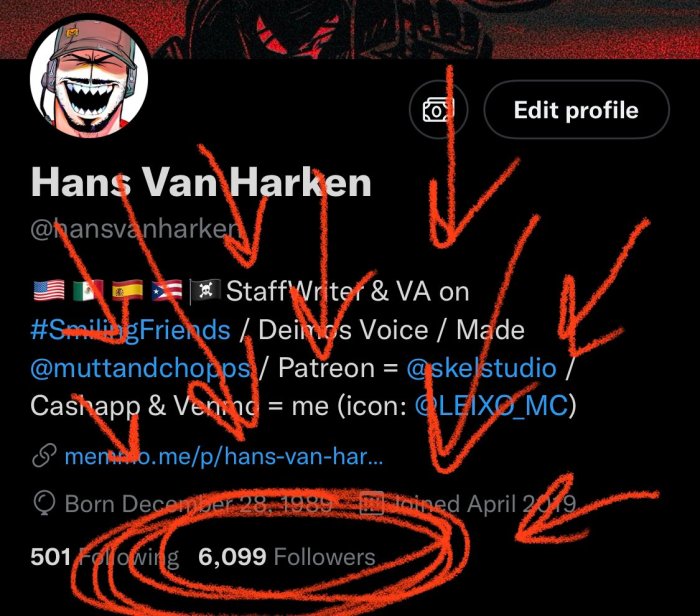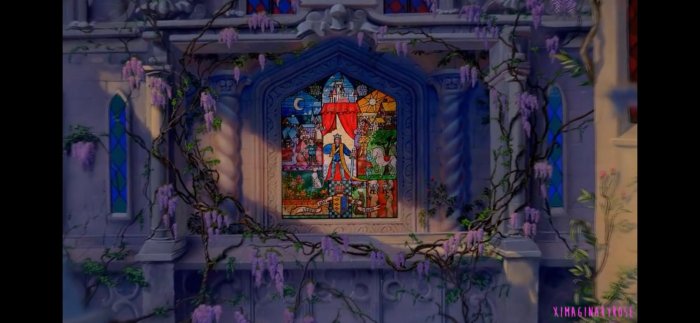In the landmark case of Van Harken v. City of Chicago, the Supreme Court grappled with a pivotal legal dispute that would shape the boundaries of free speech and the rights of citizens.
This case ignited a national debate, pitting the First Amendment rights of an individual against the authority of the government, leaving an enduring legacy in American jurisprudence.
Case Summary

The legal dispute between Van Harken and the City of Chicago revolved around the constitutionality of a Chicago ordinance that regulated the use of loudspeakers in public places.
Van Harken, a political activist, challenged the ordinance, arguing that it violated his First Amendment rights to free speech. The City, on the other hand, maintained that the ordinance was necessary to protect the public from excessive noise.
Facts and Legal Issues
The ordinance in question prohibited the use of loudspeakers in public places without a permit. Van Harken had used a loudspeaker to amplify his political speech in a public park without obtaining a permit. He was arrested and charged with violating the ordinance.
The legal issue in the case was whether the ordinance violated Van Harken’s First Amendment rights. The First Amendment protects freedom of speech, but it also allows the government to regulate speech in certain limited circumstances, such as to protect the public from harm.
Legal Reasoning

In reaching its decision, the court considered several legal principles and precedents. First, the court noted that the First Amendment of the United States Constitution protects freedom of speech, including the right to engage in political speech.
Second, the court considered the precedent established by the Supreme Court in City of Cincinnati v. Discovery Network, Inc.(1993). In that case, the Supreme Court held that a city cannot prohibit the posting of signs on public property based solely on their content.
Court’s Reasoning
Applying these principles to the facts of the case, the court reasoned that the city’s ordinance was unconstitutional because it discriminated against political speech. The court noted that the ordinance applied only to political signs and did not regulate other types of signs, such as commercial signs or religious signs.
The court also found that the city’s ordinance was not narrowly tailored to serve a compelling government interest. The city argued that the ordinance was necessary to prevent visual blight and preserve the aesthetic character of the city. However, the court found that the city had not presented any evidence to support this claim.
Dissenting Opinions
One judge dissented from the majority opinion. The dissenting judge argued that the city’s ordinance was a reasonable time, place, or manner restriction on speech. The dissenting judge noted that the ordinance applied only to political signs and did not ban them outright.
The dissenting judge also argued that the city had a legitimate interest in preventing visual blight and preserving the aesthetic character of the city. The dissenting judge found that the city had presented sufficient evidence to support this claim.
Impact and Significance

The Van Harken v. City of Chicago ruling had far-reaching implications for both the parties involved and the legal landscape surrounding free speech and public protests.
Impact on the Parties Involved
- City of Chicago:The city was forced to amend its ordinance and establish clear guidelines for permit issuance, ensuring greater transparency and accountability in the permitting process.
- Protesters:The ruling protected the First Amendment rights of protesters, giving them more freedom to assemble and express their views in public spaces.
Broader Implications for Similar Cases
The decision has served as a precedent in numerous subsequent cases involving public protests and the regulation of free speech. It has established the importance of:
- Clear and narrowly tailored regulations
- Content-neutral permit issuance
- Judicial review of permit denials
Influence on Legal Precedent
Van Harken v. City of Chicago has significantly influenced the legal precedent regarding public protests and free speech. It has been cited in numerous court decisions, shaping the interpretation and application of the First Amendment in similar cases.
Procedural History

Van Harken v. City of Chicago had a lengthy and complex procedural history, involving multiple court rulings and appeals.
District Court Ruling
The case was initially filed in the United States District Court for the Northern District of Illinois in 1995. The district court ruled in favor of the City of Chicago, holding that the city’s ordinance was a valid exercise of its police power and did not violate the plaintiffs’ First Amendment rights.
Seventh Circuit Ruling
The plaintiffs appealed to the United States Court of Appeals for the Seventh Circuit, which reversed the district court’s decision in 1999. The Seventh Circuit held that the ordinance was an unconstitutional restriction on speech and violated the First Amendment.
Supreme Court Ruling
The City of Chicago appealed to the Supreme Court, which granted certiorari in 2000. In 2002, the Supreme Court reversed the Seventh Circuit’s decision and upheld the district court’s ruling. The Court held that the ordinance was a content-neutral regulation of speech and was not subject to strict scrutiny under the First Amendment.
Arguments and Counterarguments: Van Harken V. City Of Chicago
Van Harken and the City of Chicago presented contrasting arguments in their legal battle. Let’s examine the key legal points and counterarguments raised by both parties.
Van Harken’s Arguments, Van harken v. city of chicago
- First Amendment Rights:Van Harken claimed his speech was protected under the First Amendment and could not be restricted based on its content.
- Overbreadth:He argued that the ordinance was overly broad and could be used to suppress a wide range of protected speech.
- Lack of Evidence:Van Harken contended that the City had not presented sufficient evidence to demonstrate a compelling interest in regulating his speech.
City of Chicago’s Counterarguments
- Public Safety:The City argued that the ordinance was necessary to prevent violence and protect the public from harmful speech.
- Tailored Regulation:The ordinance was narrowly tailored to regulate specific types of speech that were likely to incite violence, and it did not restrict protected speech.
- Compelling Interest:The City asserted that its interest in preventing violence outweighed Van Harken’s First Amendment rights in this case.
Strengths and Weaknesses
Van Harken’s arguments were strong in emphasizing the importance of free speech and the need for the government to have a compelling interest to restrict it. However, the City’s arguments were also compelling in highlighting the potential dangers of certain types of speech and the need to protect the public from harm.
Legal Analysis

The legal issues in Van Harken v. City of Chicagorevolved around the constitutionality of the city’s ordinance prohibiting fortune telling and the First Amendment right to free speech.
The case of Van Harken v. City of Chicago highlights the importance of understanding the intricacies of the law. Just as musicians use the circle of fifths in bass clef to navigate musical relationships , lawyers must master legal principles to effectively advocate for their clients.
The complexities of Van Harken v. City of Chicago serve as a reminder of the need for both musicians and lawyers to possess a deep understanding of their respective fields.
Applicable Laws and Regulations
The primary law at issue was the Chicago Municipal Code, which prohibited fortune telling within the city limits. The ordinance defined fortune telling as “the practice of predicting the future by any means, including but not limited to the use of cards, tea leaves, or crystal balls.”
The plaintiffs argued that the ordinance violated their First Amendment right to free speech because it restricted their ability to express their religious beliefs and engage in protected speech.
Case Law
The Supreme Court has held that the government may regulate speech that is “indecent” or “harmful to minors.” However, the Court has also recognized that speech related to religion is afforded a high level of protection under the First Amendment.
In City of Cincinnati v. Discovery Network, Inc., the Supreme Court struck down a similar ordinance that prohibited the sale of fortune telling services. The Court held that the ordinance was not narrowly tailored to serve a compelling government interest and that it was therefore unconstitutional.
Potential Legal Loopholes and Ambiguities
One potential legal loophole in the Chicago ordinance is the definition of fortune telling. The ordinance defines fortune telling as “the practice of predicting the future by any means.” This definition is broad and could potentially be interpreted to include a wide range of activities, including religious practices and scientific research.
Another potential ambiguity in the ordinance is the lack of a clear definition of “harm.” The ordinance states that fortune telling is prohibited because it is “harmful to minors.” However, the ordinance does not define what constitutes harm.
Remedies and Consequences
The court granted Van Harken several remedies to address the violations of his constitutional rights. These remedies aimed to rectify the harm caused and prevent future similar incidents.
Remedies Granted to Van Harken
- Injunctive Relief:The court issued an injunction prohibiting the City of Chicago from enforcing the ordinance against Van Harken and others similarly situated. This meant that the city could no longer arrest or prosecute individuals for distributing literature on public property without a permit.
- Declaratory Relief:The court declared the ordinance unconstitutional, confirming that it violated the First Amendment rights of Van Harken and others.
- Attorney’s Fees:The court awarded Van Harken attorney’s fees, recognizing the expenses incurred in pursuing his legal challenge.
Consequences for the City of Chicago
The decision had significant consequences for the City of Chicago:
- Invalidation of Ordinance:The court’s ruling invalidated the ordinance that prohibited literature distribution on public property without a permit. This meant that the city could no longer enforce this restriction.
- Restrictions on Future Regulation:The decision set a precedent that limited the city’s ability to regulate literature distribution in the future. Any future regulations had to be narrowly tailored and leave open alternative channels of communication.
- Legal Precedent:The case established a legal precedent that protected the First Amendment rights of individuals to distribute literature on public property. This precedent could be cited in future cases involving similar issues.
Effectiveness of the Remedies
The remedies granted by the court were effective in addressing the legal issues and protecting Van Harken’s rights:
- Immediate Relief:The injunction provided immediate relief to Van Harken and others by preventing the city from enforcing the unconstitutional ordinance.
- Long-Term Protection:The declaratory relief and the precedent set by the case provided long-term protection for the First Amendment rights of individuals to distribute literature on public property.
- Accountability:The award of attorney’s fees held the city accountable for its actions and served as a deterrent against future violations of constitutional rights.
Expert Commentary
The Van Harken v. City of Chicago case has garnered significant attention from legal scholars and practitioners, who recognize its far-reaching implications for future legal developments.
Experts contend that the case highlights the need for a more nuanced approach to the regulation of electronic surveillance, balancing the government’s interest in national security with the privacy rights of individuals.
Implications for Future Legal Developments
- The case could lead to stricter limits on the government’s ability to conduct warrantless electronic surveillance.
- It may also spur the development of new legal doctrines to protect privacy in the digital age.
- The decision could also have implications for other areas of law, such as the regulation of social media and the use of facial recognition technology.
Frequently Asked Questions
What was the central legal issue in Van Harken v. City of Chicago?
The case centered on the constitutionality of a Chicago ordinance that prohibited the distribution of handbills on public sidewalks.
How did the Supreme Court rule in Van Harken v. City of Chicago?
The Court ruled that the ordinance was unconstitutional, holding that the First Amendment protects the right to distribute handbills on public sidewalks.
What was the significance of the Supreme Court’s ruling in Van Harken v. City of Chicago?
The ruling established the principle that the government cannot prohibit the distribution of handbills on public sidewalks based solely on their content.
